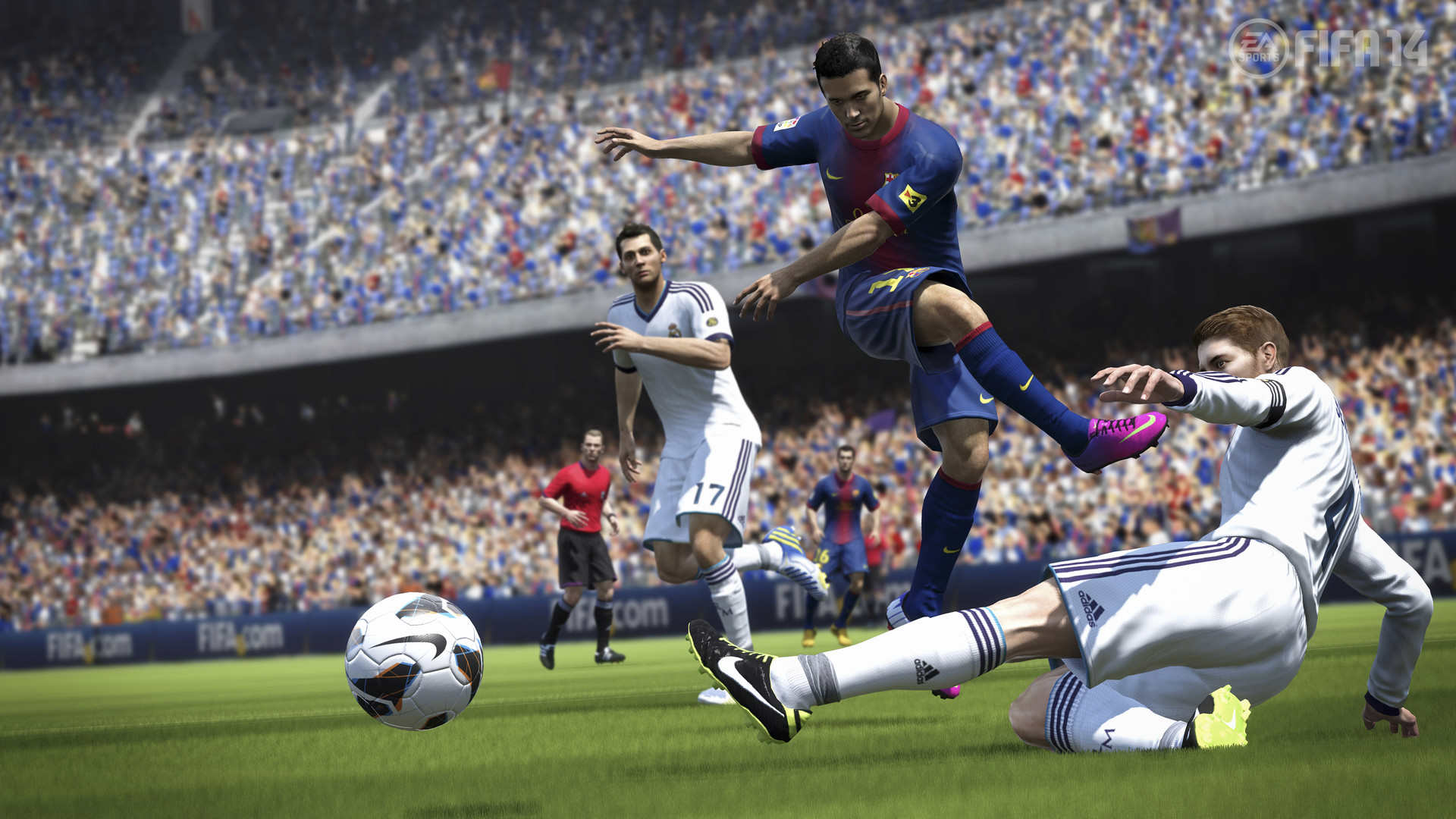John Riccitiello, former CEO of Electronic Arts and now investor in gaming companies, spoke at last week’s Gaming Insider Summit. His talk covered a wide range, from gaming brands to the lessons mobile games have for traditional games and vice versa. Riccitiello pulled no punches about what he saw as the weaknesses and strengths of the mobile game industry.
First, Riccitiello spoke about the importance of brands to games and game companies. “I’ve been told over and over again that there’s no such thing as brands in entertainment,” said Riccitiello. “At Electronic Arts I had half my board tell me that over and over again, and I think they’re wrong.”
“I think a brand is really about three things,” said Riccitiello. “I think about a brand as having a consistent set of values over time. We give brands the benefit of the doubt; you lean in instead of starting out skeptical. The third thing is it’s a preferred choice — because of the brand, you choose it over the alternative. What that wraps up to me is a single word: It’s about trust. You trust a brand, and a brand is something that’s built over the years, over the decades.”
The relative importance of gaming brands is huge, in Riccitiello’s analysis.”One day of one game was bigger than the biggest movie box office open of all time,” Riccitiello said, comparing GTA V‘s $800 million opening to Harry Potter and the Deathly Hallows Part 2‘s $483 million opening weekend. He also compared that to the Super Bowl’s revenue generation, where last year it generated $263 million in ads, $73 million in tickets, and New Orleans’ estimate of $463 million in all the hotels and meals and other spending, “You’re still $30 million short of one day for one game.”
The number one book of all time is A Tale of Two Cities with 200 million copies sold since its publication in 1859. Inspired by that, Riccitello looked at the biggest entertainment properties of all time in terms of direct revenue. “Call of Duty, FIFA, World of Warcraft and Grand Theft Auto have all crisply cleared $10 billion,” Riccitiello pointed out. “Call of Duty alone has $1.8 billion in a year, FIFA is over a billion dollars in a year. My guess is, and I’ve done the math, is that five — and possibly seven —of the best-selling intellectual properties in the history of entertainment going back to 1859 are console games, with one PC game. They must have done something right.”

Something else he pointed out is the longevity of the top gaming brands. “Warcraft, 1994, nineteen years old. FIFA, 1993, twenty years old. GTA, eighteen years old, COD, ten years old, Battlefield, eleven years old. Mario is 34 years old,” Riccitiello said. “A lot of you aren’t as old as Mario. These are brands that are not only big, they’ve lasted.”
Riccitiello talked about what he thought console game makers could and should learn from mobile games. “More than anything, what the traditional game industry should learn from mobile is it’s really about service,” Riccitiello said. “It’s an ongoing business. You’d think we would have learned this some time ago, but I find it interesting that WoW and Sim City and GTA and Starcraft and many other games all fell over at launch when they put their service components together. Some of the biggest brands — I’d argue almost all the biggest brands — fell over from lack of the testing and research that mobile people do in the regular course of their day.”
“Another thing that console and PC guys could and should learn is variable pricing,” Ricitiello said. “$60 is a giant FU to a very large number of people. There’s not been a console game with even half as many installs as Clash of Clans. Puzzle & Dragons has got more installs than any console game in history. Getting a larger audience through variable pricing is a really useful thing.”
“The third thing to learn is simplicity,” Riccitiello said. He noted how games used to come with “500 page manuals” and while games have gotten simpler, “It’s incredibly rare for a new game from a traditional game company to be learnable without instruction in ten, fifteen or twenty seconds and get to the fun that quick.”
Riccitiello then considered the other side of the issue — what mobile game companeis could learn from traditional gaming companies. “What do you think about mobile? Do you think the leading products of today are going to be here in ten or twenty years?” Riccitiello asked. “Products like Dragonvale or Angry Birds are not in the top ten any more. I’m not here to criticize, but I’m here to argue they did not do enough to build themselves into truly durable brands.” Ricitiello thinks that only those brands that go about the process of purposefully building their brands are going to be here in time.
There are three key things that Riccitiello believes mobile companies can learn from traditional gaming companies. First, mobile game companies should innovate. He doesn’t mean small incremental improvements that mobile companies are used to pushing out. “By innovation, I mean imagine your worst nightmare,” Riccitiello said. “Somebody took your game apart and imagined all the things that could make it fundamentally better, many of them discontinuous with the technology you used to create the game. In other words, you can’t get there from here. I would argue you need to take big steps, big risks, and risk alienating your existing audience.” He feels it’s almost never done in mobile, and it needs to be done if you want your game to last for a long time. “You’re gonna have to go there if you want to be here.”
“Execute” is Riccitello’s second key to success. “Imagine you have 100 million installs, you have 20-30 million people playing your game every month, and 7 million people playing a day spending $5 million a day,” Riccitiello argued. “Trust me — these people are not going to play your beta. They are not going to be turned on by the rough edges of a lean startup. You’re going to need to put out an enormously polished product. By the way, that’s what New Zealand is for.”
“Gameplay is superior to tech,” said Riccitiello. “Yes, you’re going to need to be somewhere near but not necessarily on top of the leading edge of technology. But I would argue that chasing tech for eye candy or going 3D because it’s cool is a recipe for making more expensive games, not better games.”

